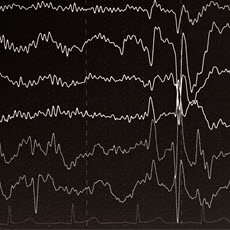
Seizures are symptoms of a brain problem. They happen because of sudden, abnormal electrical activity in the brain. When people think of seizures, they often think of convulsions in which a person's body shakes rapidly and uncontrollably. Not all seizures cause convulsions. There are many types of seizures and some have mild symptoms. Seizures fall into two main groups. Focal seizures, also called partial seizures, happen in just one part of the brain. Generalized seizures are a result of abnormal activity on both sides of the brain.
Most seizures last from 30 seconds to 2 minutes and do not cause lasting harm. However, it is a medical emergency if seizures last longer than 5 minutes or if a person has many seizures and does not wake up between them. Seizures can have many causes, including medicines, high fevers, head injuries and certain diseases. People who have recurring seizures due to a brain disorder have epilepsy.
- Seizures (National Library of Medicine)Seizures are symptoms of a brain problem. They happen because of sudden, abnormal electrical activity in the brain. When people think of seizures, they often think of convulsions in which a ...
- You have epilepsy . People with epilepsy have seizures. A seizure is a sudden brief change in the electrical and chemical activity in the brain. After you go home from the hospital, ...
- Pyridoxal phosphate-responsive seizures (sometimes called pyridoxamine 5'-phosphate oxidase deficiency or PNPO deficiency) is a condition in which repeated seizures ( ...
- Bilateral tonic-clonic seizure is a type of seizure that involves the entire body. It is also called grand mal seizure. The terms ...
- An absence seizure is the term for a type of seizure involving staring spells. This type of seizure is a brief (usually less than 15 seconds) ...
- All seizures are caused by abnormal electrical disturbances in the brain. Focal seizures occur when this electrical activity is in a ...
- Genetic epilepsy with febrile seizures plus (GEFS+) is a spectrum of seizure disorders of varying severity. GEFS+ is usually diagnosed in families whose members ...
- Malignant migrating partial seizures of infancy (MMPSI) is a severe form of epilepsy that begins very early in life. Recurrent seizures begin before the age of ...
- Benign familial neonatal seizures (BFNS) is a condition characterized by recurrent seizures in newborn babies. The seizures begin around day 3 of life and usually ...
- A seizure is the physical changes in behavior that occurs during an episode of specific types of abnormal electrical activity in the brain. The term "seizure" is often used interchangeably with "convulsion." During convulsions ...



